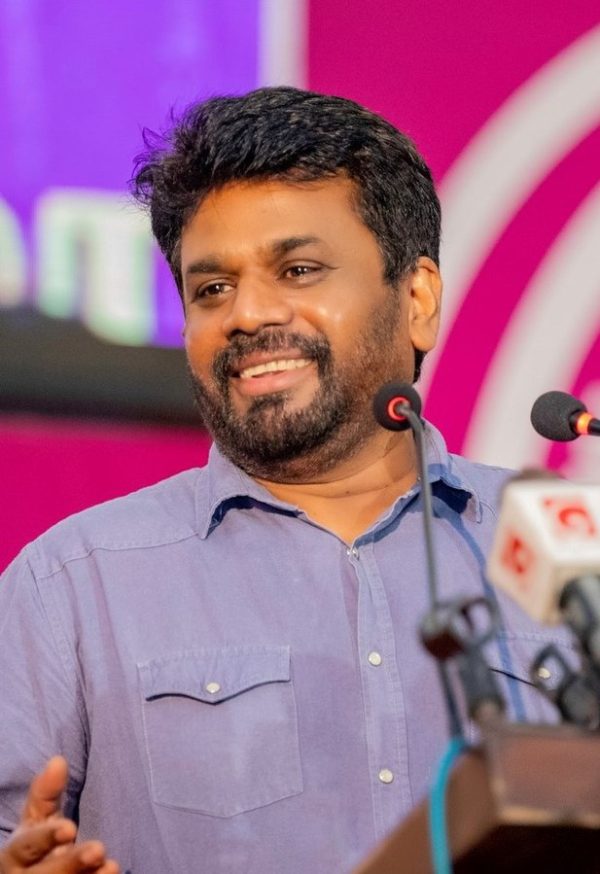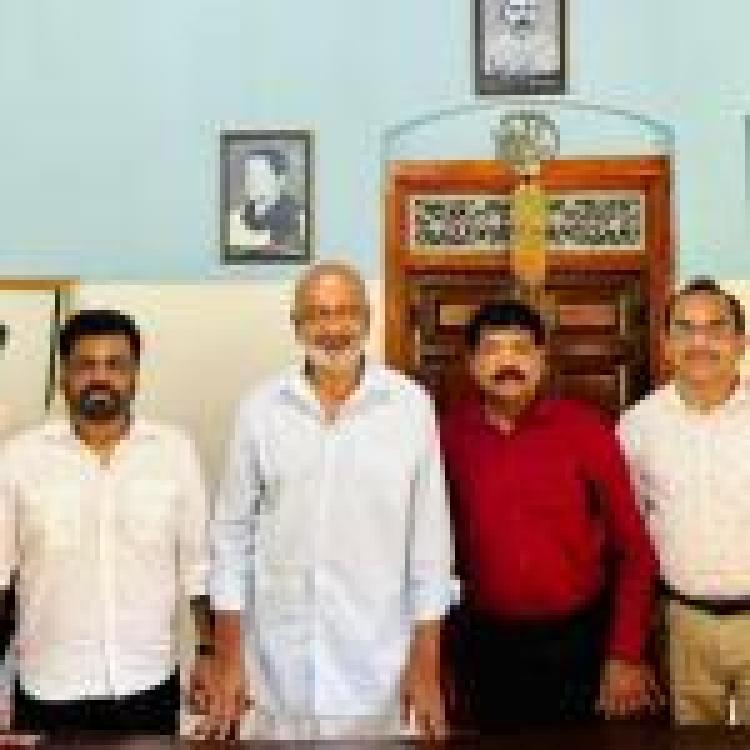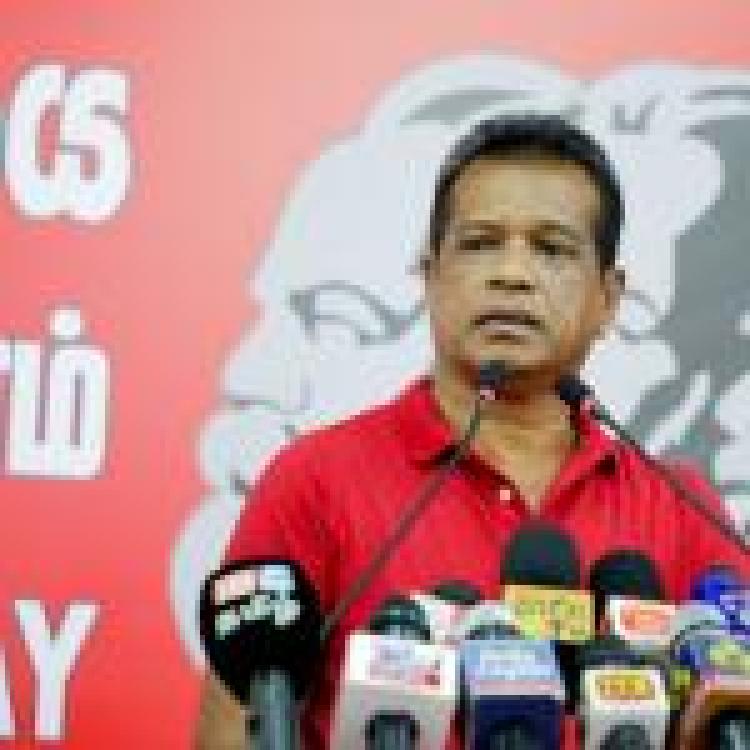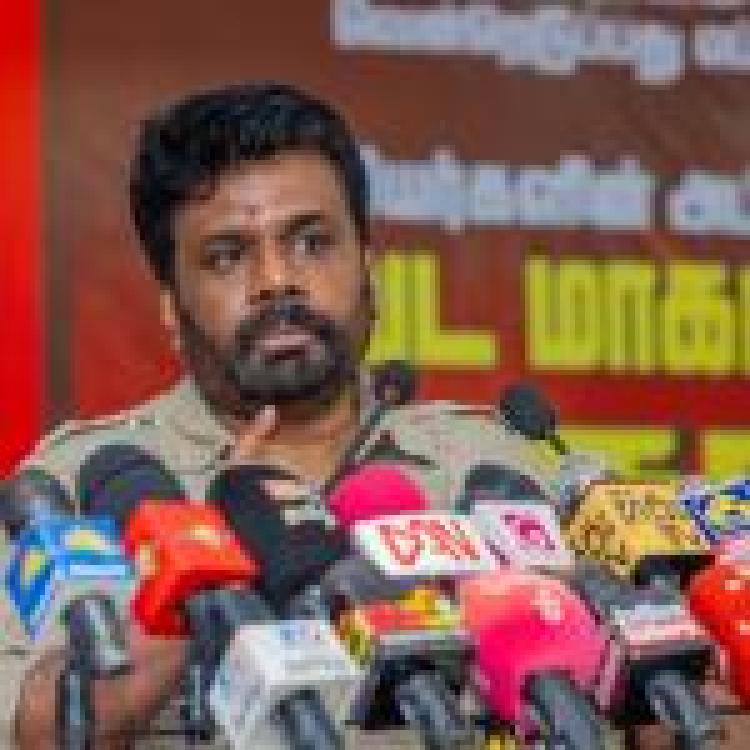
Anura Kumara Dissanayake, a candidate for the National People's Power alliance (NPP), vowed not to punish perpetrators of war crimes as he released his manifesto this week, notably excluding any reference to accountability or militarisation of the Tamil North-East.
The manifesto available in Sinhalese and Tamil, but not English on their website, had stark gaps regarding justice and accountability for Tamils. There were no explicit references to the implementation of the 13th Amendment, accountability for Sri Lanka's war crimes or the militarisation of the North-East.
The manifesto attributes "social inequalities in the distribution of land" to privatisation, citing that this has caused "various political problems". It pledges that the NPP will develop a system of quasi-judicial institutions for "fast and fair" resolution of land related issues. Currently, there are various on-going land disputes and the military occupation of the North-East.
It is also pledged that fishing disputes "caused by foreign fishermen in the North-East" will be resolved diplomatically. Recently, there have been numerous issues in the Palk Strait region with over 341 Indian fishermen apprehended by the Sri Lankan navy over alleged fishing boundary disputes in 2024.
Within the National Security section, the manifesto reads it aims to "strengthen engagement with Southeast Asian and ASEAN organisations to combat terrorism, separatism, extremism, piracy and other non-traditional security threats". The manifesto also pledges to ensure "territorial integrity and sovereignty of the country without compromise".
Contrastingly, under the Current Foreign Policy Positions section, the NPP is "supporting the two-state solution adopted by the United Nations for the establishment of an independent and sovereign Palestinian state". Previously, Sri Lankan officials have called for Palestinian justice yet ignored the same for Tamils.
The manifesto also pledges to repeal "repressive ordinances including the Anti-Terrorism Act", an act that has been accused of curtailing free speech and association.
Presidential candidate and party leader of Janatha Vimukthi Peramuna (JVP) Anura Kumara Dissanayake, stated elsewhere that the NPP "will not seek to punish anyone accused of rights violations and war crimes".
“On the question of accountability, it should not be in a way to take revenge, not in a way to accuse someone, but only to find out the truth,” he added. Dissanayake then continued to claim “even the victims do not expect anyone to be punished," even as Tamils across the North-East demanded an international accoutnability mechanism and for Sri Lanka to be taken to the International Criminal Court. In his manifesto however, it is pledged that the NPP will investigate and "do justice" to the political killings, disappearances and abductions in the North-East as well as functioning of the Truth and Reconciliation Commission to investigate acts of violence committed due to "racism and religious extremism".
The JVP's stance on the implementation of the 13th amendment had initially been against it, before flipping earlier in June to agree on its implementation. The 13th Amendment was brought in after the Indo-Sri Lankan agreement of 1987, which calls for a merged North-East and the devolution of police and land powers to the province.
The JVP has staunchly opposed any devolution of power, which was reaffirmed by senior JVP member Herath who told reporters in Colombo this year, that the party would never take any measures that would endanger the country's territorial integrity. Earlier this year senior JVP member K D Lalkantha said only his party and one other led by extremist Sinhala monks are responsible for defeating “separatist terrorism” as he boasted of “ending” the island’s conflict “through war,” a day after Tamil Genocide Remembrance Day.
The Indo-Lanka Accord was signed in 1987, without any input from Tamil parties, and established the 13th Amendment to Sri Lanka’s constitution which created the system of Provincial Councils, promising greater devolution of land and police powers to a merged North-East. The JVP staged two insurrections against the state in the early 1970s and the late 1980s. The latter of these was chiefly in response to the Indo-Lanka accord and the 13th Amendment which sought to devolve powers to Tamils in the North-East. Tens of thousands were killed. Then leader Rohana Wijeweera framed Tamil demands for self-determination as in-hoc with US imperialist interests in his 1986 book “Solutions for Tamil Eelam Struggle”.




